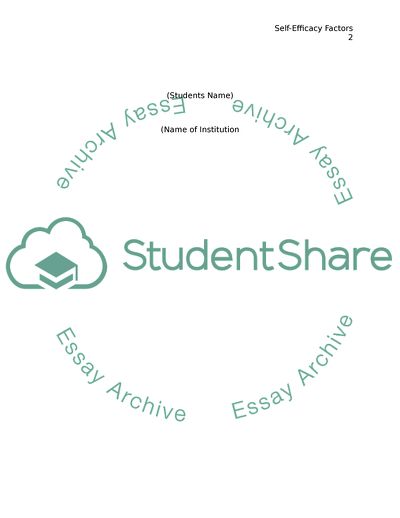Cite this document
(Which Factors Influence Students Self-Efficacy with Regard to Their Research Paper Example | Topics and Well Written Essays - 3000 words - 1, n.d.)
Which Factors Influence Students Self-Efficacy with Regard to Their Research Paper Example | Topics and Well Written Essays - 3000 words - 1. https://studentshare.org/education/1801566-which-factors-influence-students-self-efficacy-with-regard-to-their-academic-performance
Which Factors Influence Students Self-Efficacy with Regard to Their Research Paper Example | Topics and Well Written Essays - 3000 words - 1. https://studentshare.org/education/1801566-which-factors-influence-students-self-efficacy-with-regard-to-their-academic-performance
(Which Factors Influence Students Self-Efficacy With Regard to Their Research Paper Example | Topics and Well Written Essays - 3000 Words - 1)
Which Factors Influence Students Self-Efficacy With Regard to Their Research Paper Example | Topics and Well Written Essays - 3000 Words - 1. https://studentshare.org/education/1801566-which-factors-influence-students-self-efficacy-with-regard-to-their-academic-performance.
Which Factors Influence Students Self-Efficacy With Regard to Their Research Paper Example | Topics and Well Written Essays - 3000 Words - 1. https://studentshare.org/education/1801566-which-factors-influence-students-self-efficacy-with-regard-to-their-academic-performance.
“Which Factors Influence Students Self-Efficacy With Regard to Their Research Paper Example | Topics and Well Written Essays - 3000 Words - 1”. https://studentshare.org/education/1801566-which-factors-influence-students-self-efficacy-with-regard-to-their-academic-performance.


